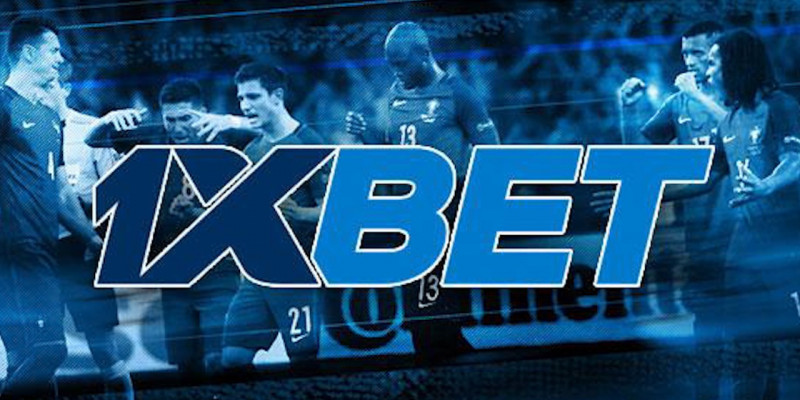
Sports betting occupies a unique space at the intersection of entertainment, skill, and risk. For newcomers and seasoned players alike, the challenge is the same: transform interest and information into consistent, disciplined decision making. One practical step for those exploring options and offers is to research reputable platforms such as sports betting 1xbet pakistan while keeping safety and regulation in mind. Beyond platform choice, however, successful betting rests on a foundation of bankroll control, statistical thinking, market awareness, and emotional discipline.
Bankroll management is the backbone of sustainable betting. Set aside a specific amount you can afford to lose and treat that as your betting bankroll. From that pool, formalize a staking plan: fixed units, percentage of bankroll per wager, or Kelly-based sizing are common approaches. Fixed-unit staking simplifies decision-making and curbs impulsive increases after wins or losses. The Kelly Criterion aims to maximize long-term growth by scaling bets to perceived edge, but it demands accurate estimation of probabilities — a difficult task in practice — and can produce volatile swings. For most recreational bettors, keeping stakes modest (1–3% of bankroll per bet) minimizes ruin risk and preserves emotional equilibrium.
Understanding odds is essential. Odds encode the market’s implied probability and the bookmaker’s margin. Decimal, fractional, and American formats differ only in presentation; the underlying math does not. Convert odds to implied probabilities and compare them to your own assessed probabilities. Value exists when your estimated probability of an outcome exceeds the market-implied probability after adjusting for margin. Consistent value-seeking, not chasing winners or big longshots, is the path toward positive expectation over time.
Research and information sourcing separate informed bettors from speculators. Solid pre-match research includes team form, injuries, suspensions, scheduling congestion, weather conditions, and head-to-head trends. For individual sports, athlete conditioning, surface preferences, and tournament incentives matter. For team sports, consider coaching changes, tactical matchups, and lineup rotations. Aggregating news from multiple reliable sources and incorporating objective metrics — xG in football, PER in basketball, advanced pitching metrics in baseball — helps create better probability estimates. Beware of information overload and always test whether new data genuinely changes the expected outcome.
Markets vary widely in liquidity and efficiency. Major markets like top-division football, NBA, and MLB are heavily traded and reflect a lot of public and professional information, making them harder to beat without specialized insight. Niche markets — lower leagues, certain international competitions, or obscure sports — may offer more mispricings but come with greater uncertainty and sometimes limited reliable data. Assess whether your knowledge or data advantage aligns with the markets you target. Specialization in a narrow slice often yields more consistent value than spreading bets thinly across many sports.
In-play (live) betting offers dynamic opportunities but also presents unique hazards. Live odds move rapidly as events unfold; reacting quickly to momentum shifts can capture value not yet reflected by the market. However, bookmakers adjust faster when patterns are obvious, and emotional bettors may chase losses or overreact to small, transient swings. If using in-play strategies, have a clear plan: predetermined triggers for entry and exit, position-sizing rules, and an understanding of how time decay and changing match states influence probabilities.

Analytics and modeling are increasingly central. Many successful bettors build quantitative models that estimate outcome probabilities using historical data, covariates, and machine learning techniques. Key principles for modeling include avoiding overfitting, keeping models interpretable, and validating performance out of sample. Combine model outputs with qualitative insights — sudden lineup changes, referee assignments, or local factors hard to encode — to refine wagers. Model-based approaches also help in portfolio management, optimizing bet selection across several simultaneous opportunities.
Line shopping and finding the best odds across multiple bookmakers is a straightforward way to improve long-term returns. Small differences in odds compound over many bets; a few percentage points of extra value can separate profit from loss across a season. Use comparison tools and maintain accounts with several reputable sportsbooks. For larger stakes or professional activity, consider exchanges and brokers that allow trading positions or laying outcomes to hedge risk.
Arbitrage and matched betting promise risk-free or low-risk profits by exploiting price discrepancies, but they require speed, multiple accounts, and often large capital. Bookmakers may limit or ban accounts that consistently exploit arbitrage opportunities. Matched betting, which leverages promotional bonuses and free bets, can be lucrative for a limited time but demands careful bookkeeping and an understanding of terms and conditions.
Psychology matters. Cognitive biases — loss aversion, recency bias, and overconfidence — distort judgment. Keep a betting log documenting stake, reasoning, odds, and outcome. Periodic review reveals strengths, weaknesses, and patterns of self-destructive behavior. Discipline means sticking to your staking plan, accepting short-term variance, and avoiding the temptation to “make up” losses with oversized bets. Breaks after streaks and setting limits on time and money spent prevent burnout and problematic gambling.
Responsible gambling practices are non-negotiable. Set deposit and loss limits, use self-exclusion tools if needed, and seek help when betting stops being fun or begins to harm finances, relationships, or mental health. Industry resources, local support services, and counseling can provide guidance. Operators and regulators increasingly promote safer-play features; choose platforms that prioritize transparency, fair terms, and customer protections.
Legal and regulatory landscapes differ by jurisdiction. Understand local laws around betting, taxation of winnings, and licensed operator lists. Betting with regulated, reputable operators reduces counterparty risk and helps ensure fair treatment in disputes. Offshore or unlicensed platforms may offer attractive odds or bonuses but carry elevated legal and financial risks.
Finally, treat sports betting as an endeavor where continuous learning improves outcomes. Follow changes in rules, playing styles, and analytics; refine models; and adapt strategies as markets evolve. Network with other bettors, participate in communities where ideas are tested rigorously, and maintain a skeptical mindset toward “sure things” or hot tips. Over time, a combination of discipline, data-driven methods, sensible bankroll practices, and emotional control offers the best chance of turning sports betting from a mere pastime into a sustainable, responsible pursuit.
